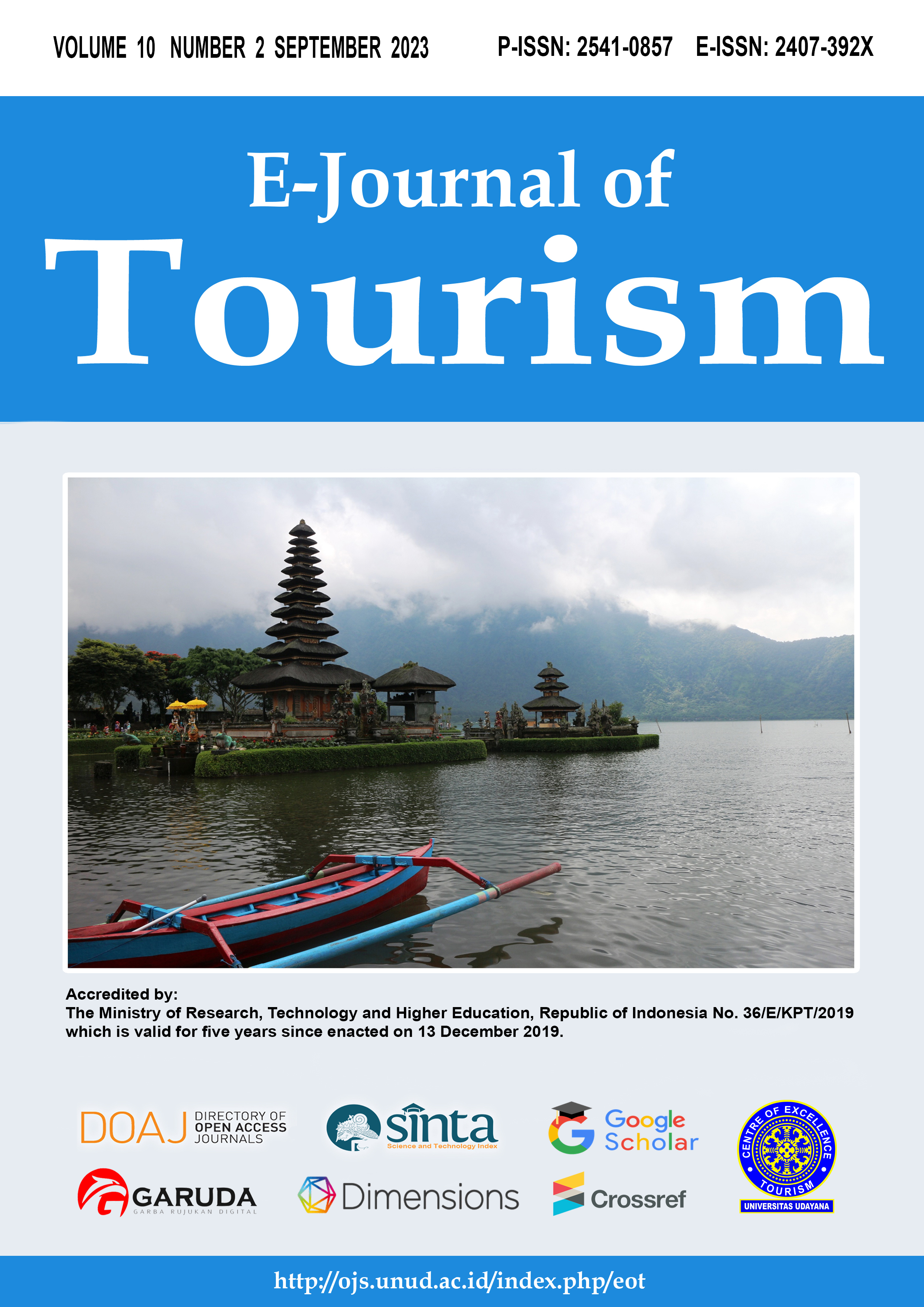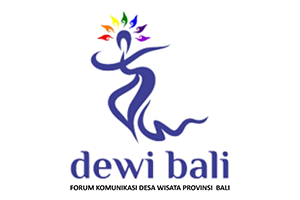Ecovillage Market Segmentation Based on Sustainability Tourism Concept at Panji Village
Abstract
Tourism market segmentation needs to be known, as is the case with the development of Tourism Villages. The purpose of this research is to find potential market segmentation that can be targeted for Panji Tourism Village. Qualitative research methods through in-depth interviews were conducted. The data can be processed using the AHP analysis tool. The results show that market segmentation for the ecovillage concept in Panji Tourism Village is the family tourist market share, the main criteria is feasibility which means that the future prospects of developing tourist attractions developed in Panji Tourism Village are tourist activities that can be enjoyed by families, with current considerations looking at a market that has the potential to come for families because apart from easy access and the potential tourist attractions offered can be enjoyed by family members. The results of this study have implications for the readiness of the community to continue to innovate local products that can be enjoyed by tourists of all ages in one family. By continuing to pay attention to the various possible needs of tourists, especially the family tourist market, it is hoped that a sustainable visit will occur.
Keywords: tourism; village; market segment.
Downloads
References
Saaty, T. L. (2008). Decision-making with the analytic hierarchy process. International journal of services sciences, 1(1), 83-98.
Budiarta, L. G. R. (2021). Pelatihan Keterampilan Komunikasi Kelompok Sadar Wisata (Pokdarwis) Dalam Mengembangkan Pariwisata di Desa Panji. BERDAYA: Jurnal Pendidikan dan Pengabdian Kepada Masyarakat, 3(1), 9-16.
Andiani, N.D. 2020. Pendampingan Promosi E-Digital Melalui Virtual Tour Pada Pokdarwis Desa Wisata Panji. Proceeding Senadimas Undiksha 2021.
Sunaedi, N., & As’ari, R. (2018). Program ecovillage sebagai upaya perubahan perilaku masyarakat dalam pelestarian kawasan DAS Citanduy di Kecamatan Panumbangan Kabupaten Ciamis. Prosiding Seminar Nasional Geografi UMS IX 2018.
Amelia, R., Sari, F. I. P., & Safitri, R. (2019, September). Pemberdayaan Masyarakat Desa Penagan Dalam Pemanfaatan Potensi Lokal Berbasis Eco-Village. In Proceedings Of National Colloquium Research And Community Service (Vol. 3, pp. 196-200).
Andiani, N.D. 2020. Pendampingan Promosi-Digital Melalui Virtual Tour Pada Pokdarwis Desa Wisata Panji. Proceeding Senadimas Undiksha 2021.
Pantiyasa, I Wayan. 2020. Evaluasi Pengelolaan Desa Wisata Kaba-Kaba Kecamatan Kediri Kabupaten Tabanan. Jurnal Ilmiah Hospitality Management.Vol. 10, No. 2, pp. 109 – 129.
Hermawan, H. (2016). Dampak pengembangan Desa Wisata Nglanggeran terhadap ekonomi masyarakat lokal. Jurnal Pariwisata, 3(2), 105-117.
Bang, J. M. (2005). Ecovillages: A Practical Guide to Sustainable Communities. New Society Publisher.
Gilman, R. (1991). The Ecovillage Challenge - The Challenge of Developing a Community Living in Balanced Harmony - With Itself as Well as Nature - is Tough, but Attainable. In Context, IC#29. Re-trieved from: http://bit.ly/19AH38j.
H Maslow. 1943. A Theory of Human Motivation, Psychology Reviev, Hal. 370.
Wall, G., & Mathieson, A. 2006. Tourism: Change, Impacts, and Opportunities. Pearson Education.
Pitana, I. G., & Putra, I. G. S. A. (2013). Pariwisata sebagai Wahana Pelestarian Subak, dan Budaya Subak Sebagai Modal Dasar dalam Pariwisata. Jurnal Kajian Bali, 3(2), 159-180.
Hanggraito, A., & Sanjiwani, N. (2020). Tren Segmentasi Pasar dan Perilaku Wisatawan Taman Bunga Amaryllis di Era 4.0. Journal Of Tourism And Creativity, 4(1), 43-58. doi:10.19184/jtc.v4i1.14476.
Adikampana, I. M., Sunarta, I. N., Pujani, L. P. K., & Sanjiwani, P. K. Pendampingan Pokdarwis Desa Wisata Perancak Dalam Menentukan Target Pasar Pariwisata.
Shi, T. T., Liu, X. R., & Li, J. J. (2018). Market Segmentation by Travel Motivation Under A Transforming Economy: Evidence From A Monte Carlo of the Orient. Sustainability, 10, 3395.
Saaty, T. L. (2008). Decision making with the analytic hierarchy process. International journal of services sciences, 1(1), 83-98.
Oentoro, Deliyanti. 2010. Manajemen Pemasaran Modern. Yogyakarta: Laksbang Pressindo.
Sianipar, Christina Indriani dan Liyushiana. 2019. Pemasaran Pariwisata Digital oleh Pemerintah Kota Sabang”. Jurnal Darma Agung, 27 (3): 1135-1143. DOI: http://dx.doi.org/10.46930/ojsuda.v27i3.374.
Warmayana, I Gede Agus Krisna. 2021. Pemanfaatan Digital Marketing dalam Promosi Pariwisata pada Era Industri 4.0. Pariwisata Budaya: Jurnal Ilmiah Agama dan Budaya, 3 (2): 81-92.
Dama Adhyatma. 2008. Jenis-Jenis Wisatawan, dalam http://www.adhyatma.blogspot.com diakses 2 Juli 2022.

This work is licensed under a Creative Commons Attribution 4.0 International License.
The copyright of the received article shall be assigned to the journal as the publisher of the journal. The intended copyright includes the right to publish the article in various forms (including reprints). The journal maintains the publishing rights to the published articles.




















